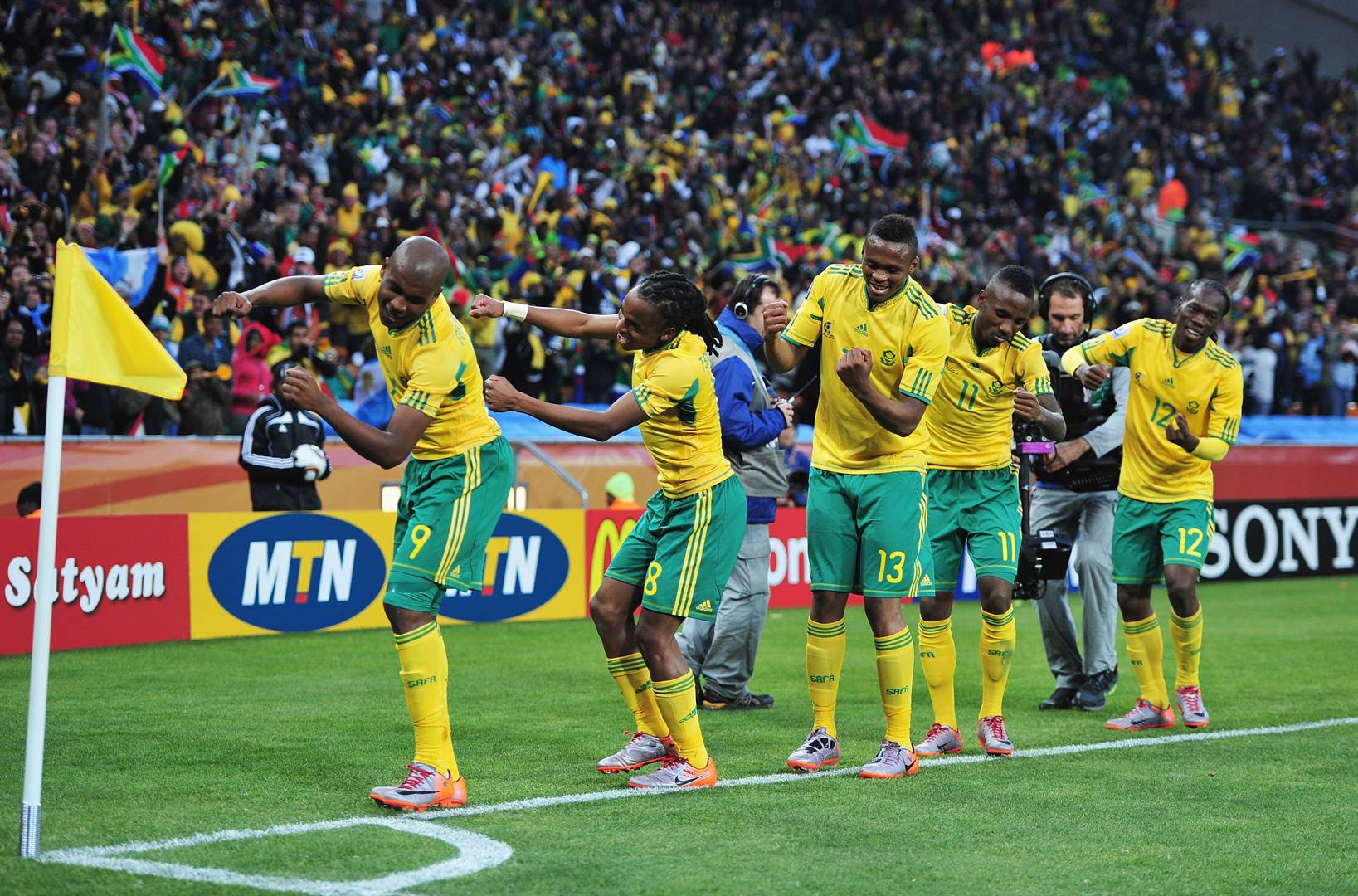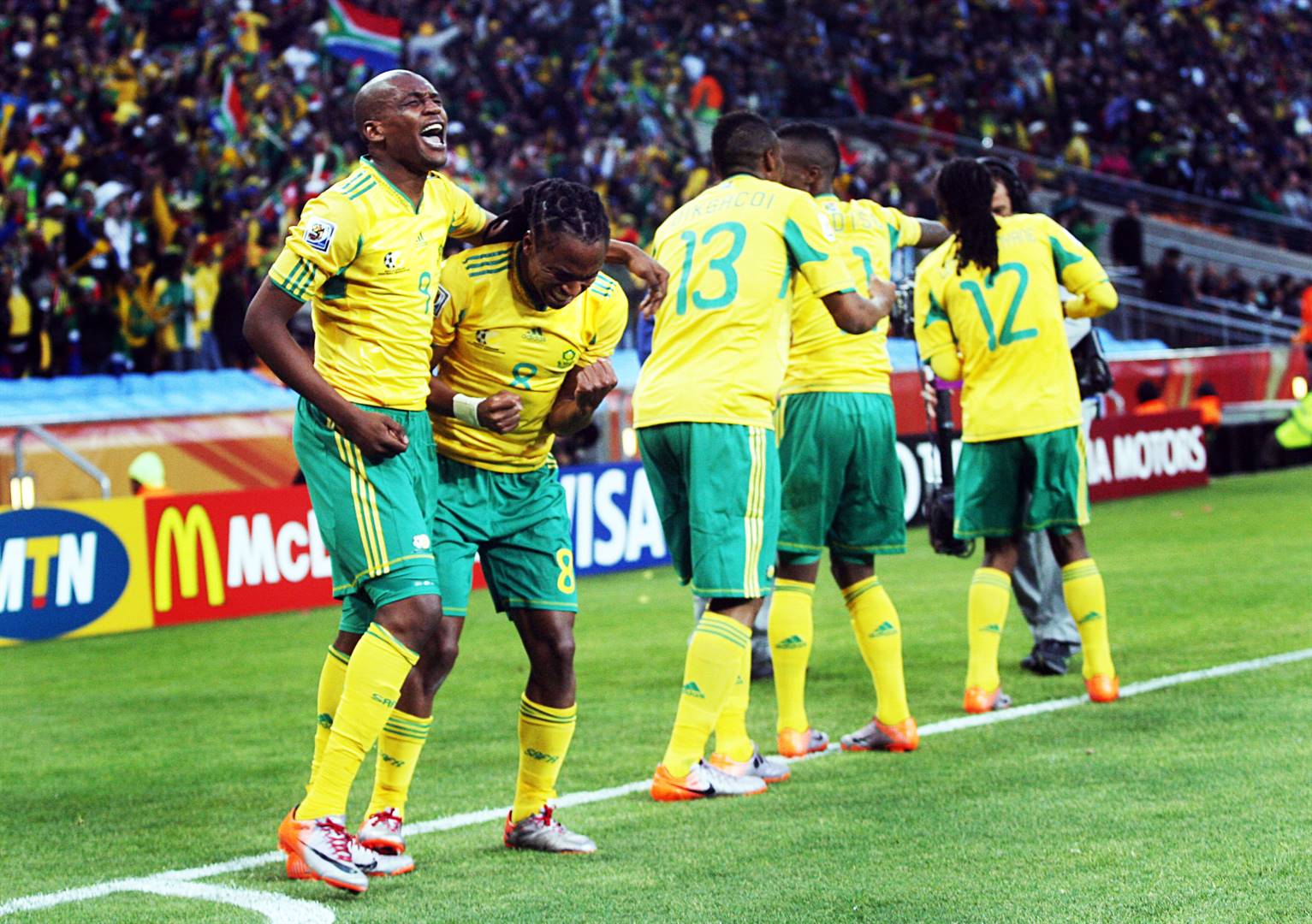World Cup Standings 2010: Remember the thrill of the vuvuzelas, the drama of the upsets, and the nail-biting tension of the final match? This journey takes you back to South Africa 2010, reliving the highs and lows of one of the most memorable World Cups ever. We’ll dive deep into the group stage battles, the knockout stage clashes, and the unforgettable final, uncovering the stories behind the scores and the stars who shone brightest on the world stage.
Get ready for a nostalgic trip down memory lane!
From Spain’s triumphant victory to the surprising early exits of some football giants, the 2010 World Cup was a rollercoaster ride. We’ll explore the key moments, the controversial calls, and the unforgettable performances that shaped this tournament, offering a comprehensive look at the final standings and the unforgettable journey to the trophy. Prepare to relive the passion, the drama, and the sheer brilliance of the 2010 FIFA World Cup!
Overview of the 2010 FIFA World Cup: World Cup Standings 2010
The 2010 FIFA World Cup, held in South Africa, was a momentous event in football history, marking the first time the tournament was hosted on the African continent. From June 11th to July 11th, 2010, 32 nations battled it out for the coveted trophy, captivating a global audience with thrilling matches and unexpected upsets. The tournament’s legacy extended beyond the field, impacting South Africa’s infrastructure and leaving a lasting impression on the world of football.The road to South Africa was paved with years of preparation and qualification matches across the globe.
The bidding process itself was highly competitive, with South Africa ultimately securing the hosting rights in 2004 after a lengthy and rigorous selection procedure. This decision represented a significant step towards globalizing the sport and acknowledging the growing popularity of football in Africa. Furthermore, significant investments were made in stadium construction and infrastructure improvements throughout the country to prepare for the influx of fans and teams.
Significant Events Leading Up to the Tournament
The build-up to the 2010 World Cup was marked by several key events. The successful bid by South Africa generated significant excitement and anticipation. The subsequent years saw intensive preparations, including the construction and renovation of stadiums across the country. Concerns regarding security and infrastructure were addressed through extensive planning and investment. Finally, the qualification rounds themselves generated considerable drama, with several unexpected results and close finishes.
The excitement generated by these events significantly contributed to the overall anticipation for the tournament.
Timeline of Key Moments During the 2010 World Cup
The 2010 World Cup unfolded with a series of memorable moments.
- June 11th, 2010: Opening Ceremony and the first match between South Africa and Mexico, ending in a 1-1 draw. The atmosphere in Soccer City was electric, showcasing the vibrant culture of South Africa.
- June 16th, 2010: Spain’s commanding 1-0 victory against Switzerland, the reigning European champions demonstrating their early dominance. This unexpected result highlighted the competitive nature of the tournament.
- June 22nd, 2010: Germany’s 4-0 thrashing of Australia showcased their offensive prowess. This game highlighted the considerable skill and tactical flexibility within the German squad.
- June 27th, 2010: Argentina’s 2-0 win against Greece with a stunning performance from Lionel Messi. This match solidified Messi’s status as one of the world’s best players.
- July 2nd, 2010: Uruguay’s unexpected 2-1 victory against Ghana, featuring a controversial handball and subsequent penalty shootout. This dramatic match exemplifies the tension and unexpected turns of the tournament.
- July 11th, 2010: Spain’s victory over the Netherlands in the final, a 1-0 win after extra time. This marked Spain’s first World Cup triumph, demonstrating their tactical mastery and team spirit.
Knockout Stage Progression

The 2010 FIFA World Cup knockout stage saw a thrilling series of matches, culminating in a dramatic final. From unexpected upsets to nail-biting penalties, the knockout rounds delivered unforgettable moments that redefined the tournament’s narrative. Let’s delve into the action, match by match.
The knockout stage, consisting of Round of 16, Quarter-finals, Semi-finals, and the final, saw a dramatic shift in the tournament’s momentum. Teams that had dominated the group stages faced unexpected challenges, while underdogs seized their opportunities to make history. The tension mounted with each passing game, culminating in a final that will be remembered for years to come.
Round of 16 Results
This stage set the tone for the rest of the knockout phase. Several favorites progressed as expected, but some surprising results shook up the bracket and altered predictions for the later rounds. The matches were characterized by tight defenses, tactical battles, and moments of individual brilliance.
- Uruguay 3 – 1 South Korea
- United States 1 – 2 Ghana
- Germany 4 – 1 England
- Argentina 3 – 1 Mexico
- Netherlands 2 – 1 Slovakia
- Brazil 3 – 0 Chile
- Paraguay 0 – 1 Spain
- Portugal 0 – 1 Switzerland
Quarter-finals Results
The quarter-finals saw the elimination of some of the tournament’s heavyweights, setting the stage for a fascinating semi-final lineup. These matches were high-stakes encounters, often decided by narrow margins and individual moments of inspiration.
- Uruguay 1 – 1 (1-4 pen) Netherlands
- Germany 4 – 0 Argentina
- Brazil 1 – 2 Netherlands
- Spain 1 – 0 Paraguay
Semi-finals Results
The semi-finals featured a clash of styles and titans of the game. The matches were intense, tactical affairs, reflecting the pressure and stakes involved at this crucial stage of the competition. The results determined the finalists and shaped the narrative of the final match.
- Uruguay 2 – 3 Germany
- Netherlands 0 – 1 Spain
Final Result
The final was a highly anticipated match between Spain and the Netherlands. The game showcased both teams’ strengths and weaknesses, culminating in a hard-fought victory for Spain.
Investigate the pros of accepting club world cup games in your business strategies.
- Netherlands 0 – 1 Spain
Match Reports: Key Moments and Players
Detailed match reports would require extensive space, but we can highlight some key moments and players from select matches.
The Germany vs. England match saw a dominant performance from Germany, with Thomas Müller scoring two goals. The Netherlands’ victory over Uruguay was secured through a penalty shootout after a tense 1-1 draw. Spain’s victory over the Netherlands in the final was decided by a single goal from Andrés Iniesta, a moment of individual brilliance that sealed Spain’s first World Cup title.
Impact of Upsets
The upsets throughout the knockout stage significantly impacted the tournament narrative. The early exit of several favorites, such as Brazil and Argentina, opened up opportunities for other teams and created unexpected storylines. The tournament’s unpredictable nature heightened the drama and captivated audiences worldwide. The elimination of Brazil and Argentina, in particular, shifted the perception of the tournament’s favorites and injected uncertainty into the predictions for the later rounds.
Final Match Analysis

The 2010 FIFA World Cup final, a clash of titans between Spain and the Netherlands, unfolded as a tense and tactical battle, ultimately decided by a single goal in extra time. The match, played in Johannesburg’s Soccer City, showcased contrasting styles and highlighted the importance of composure under pressure.
Match Events and Key Moments
The final was a fiercely contested affair, marked by numerous fouls and a distinct lack of free-flowing football in the opening stages. Both teams demonstrated a strong defensive presence, resulting in a goalless first half. The second half saw an increase in intensity, with both sides creating chances but failing to capitalize. The game remained deadlocked until extra time, where Andrés Iniesta’s stunning goal, a precise strike from outside the box, proved to be the decisive moment, securing a 1-0 victory for Spain.
The match also witnessed several controversial incidents, including a red card shown to Dutch midfielder John Heitinga for a reckless challenge. The final whistle brought an end to a grueling and emotionally charged match, culminating in Spain’s first ever World Cup victory.
Comparison of Playing Styles and Strategies
Spain, under the guidance of Vicente del Bosque, employed their signature possession-based style, patiently building attacks and dominating midfield through precise passing and movement. Their tiki-taka approach aimed to tire out their opponents and create openings through intricate passing combinations. In contrast, the Netherlands, led by Bert van Marwijk, adopted a more direct and physical approach, focusing on counter-attacks and utilizing their strong aerial ability.
Their strategy involved disrupting Spain’s possession and launching swift transitions forward, relying on the pace and power of players like Arjen Robben. This clash of styles created a compelling dynamic, with Spain’s control often countered by the Netherlands’ aggressive disruption tactics.
Factors Contributing to Spain’s Victory
Several key factors contributed to Spain’s victory. Firstly, their superior possession and control of the midfield allowed them to dictate the tempo of the game and limit the Netherlands’ counter-attacking opportunities. Secondly, Spain’s composure and ability to maintain their patience despite the physical nature of the match proved crucial. Their disciplined defense, marshaled by Carles Puyol and Gerard Piqué, successfully neutralized the Dutch attack for much of the game.
Thirdly, the individual brilliance of players like Iniesta, whose winning goal was a testament to his skill and composure under pressure, played a pivotal role. Finally, Spain’s superior tactical flexibility allowed them to adapt to the Netherlands’ aggressive style and maintain their composure throughout the match. Their ability to absorb pressure and capitalize on a single opportunity proved decisive in securing the World Cup title.
Notable Players and Performances
The 2010 FIFA World Cup in South Africa witnessed a dazzling display of talent, with several players cementing their legacies through exceptional performances. These individuals not only showcased their individual brilliance but also significantly impacted their teams’ journeys throughout the tournament. Their contributions, ranging from crucial goals to game-changing assists and unwavering defensive prowess, shaped the narrative of the World Cup.
Beyond the final scoreline, the tournament provided a platform for numerous players to demonstrate their exceptional skills and tactical awareness. The interplay between individual brilliance and team cohesion was a defining characteristic of the competition, with some players elevating their teams to unforeseen heights.
Top Performers and Their Contributions
The tournament saw a constellation of stars shine brightly. For instance, Diego Forlán’s consistent displays for Uruguay, culminating in his crucial goals and overall influence, secured him the Golden Ball award as the tournament’s best player. His powerful strikes and skillful play were instrumental in Uruguay’s unexpected run to the semi-finals. Similarly, Wesley Sneijder’s midfield mastery for the Netherlands, characterized by his precise passing, creative playmaking, and crucial goals, was pivotal in their reaching the final.
His ability to dictate the tempo of matches and create scoring opportunities proved invaluable to his team’s success. And let’s not forget Iker Casillas, whose exceptional goalkeeping for Spain was a cornerstone of their winning campaign. His consistent saves, especially in crucial moments, prevented numerous goals and ultimately contributed significantly to Spain’s victory.
Top Goalscorers and Assist Providers
The following list highlights the players who topped the charts in goals scored and assists provided during the 2010 World Cup:
These statistics underscore the offensive firepower of these players and their contribution to their respective teams’ overall goal tallies. The combination of goals and assists provides a comprehensive view of their offensive impact on the tournament.
- Top Goalscorers: This list would typically include Thomas Müller (Germany) with 5 goals, and David Villa (Spain) also with 5 goals. Other players may have contributed with significant goal totals as well.
- Top Assist Providers: A similar list would highlight players who provided the most assists, though precise data requires further verification from official FIFA records.
Impact of Individual Player Performances on Team Success
Individual brilliance often translates into team success, and the 2010 World Cup was no exception. Players like Forlán and Sneijder carried their teams on their backs at times, inspiring their teammates and delivering when it mattered most. Their leadership qualities, technical skills, and ability to perform under pressure were vital in their respective teams’ advancement. Conversely, the absence of key players due to injury or suspension could significantly impact a team’s performance, as seen in several instances during the tournament.
The interplay between individual talent and team dynamics was a recurring theme, showcasing the intricate relationship between individual and collective achievement in the context of a high-stakes competition.
Controversies and Highlights
The 2010 FIFA World Cup in South Africa, while a spectacular showcase of footballing talent, wasn’t without its share of drama both on and off the field. From controversial refereeing decisions to breathtaking goals, the tournament delivered a potent mix of excitement and contention, leaving an indelible mark on football history. This section delves into the key controversies and unforgettable moments that defined the event.
The tournament was marked by a number of incidents that sparked debate and controversy among fans and pundits alike. These controversies, while sometimes overshadowing the beautiful game, ultimately added to the narrative of the World Cup, making it a truly memorable event.
Controversial Refereeing Decisions, World cup standings 2010
Several refereeing calls throughout the tournament generated significant controversy. The use of technology was still limited, leading to instances where decisions appeared questionable, impacting the outcome of matches. For example, the disallowed goal for England against Germany in the round of 16, and various penalty decisions throughout the tournament, became focal points of post-match discussions and analyses.
These incidents highlighted the ongoing debate about the role of technology in refereeing and the human element inherent in officiating high-stakes matches. The pressure on referees to make accurate and timely decisions under intense scrutiny is immense, and the 2010 World Cup served as a stark reminder of this challenge.
Memorable Moments and Highlights
The 2010 World Cup delivered a plethora of unforgettable moments that transcended the controversies. These highlights, ranging from individual brilliance to stunning team performances, etched themselves into the memories of football fans worldwide.
The following list encapsulates some of the most captivating moments from the tournament:
- Uruguay’s surprising run to the semi-finals: Few predicted Uruguay’s strong performance, defeating Ghana in a dramatic quarter-final clash decided by a penalty shootout after a last-minute Suarez handball. This showcased the unpredictable nature of the World Cup and the power of underdogs.
- Spain’s victory in the final: Spain’s 1-0 victory over the Netherlands in the final marked their first ever World Cup triumph. The match, while not high-scoring, was a tense and tactical affair, showcasing Spain’s dominance in possession-based football.
- Wayne Rooney’s performance against England: Despite the controversy surrounding his disallowed goal, Rooney’s overall performance against Germany in the round of 16 showcased his skill and determination, even in defeat.
- The vuvuzelas: While divisive, the constant sound of vuvuzelas became a unique and unforgettable aspect of the South African World Cup, a distinctive auditory experience interwoven with the memories of the tournament.
- Surprise exits of strong teams: The early elimination of several traditionally strong teams, such as Italy and France, added to the unpredictability and excitement of the tournament, proving that even the most established teams can be vulnerable on the World Cup stage.
So there you have it – a whirlwind tour through the 2010 FIFA World Cup! From the electrifying group stage to the heart-stopping final, we’ve revisited the key moments, the standout players, and the lasting impact of this incredible tournament. Whether you were glued to your screen in 2010 or are just discovering the magic of that World Cup, we hope this recap has ignited your passion for the beautiful game and sparked a renewed appreciation for the drama and excitement of international football.
Who knows, maybe it’ll even inspire you to delve deeper into the statistics and relive some of those classic matches!



